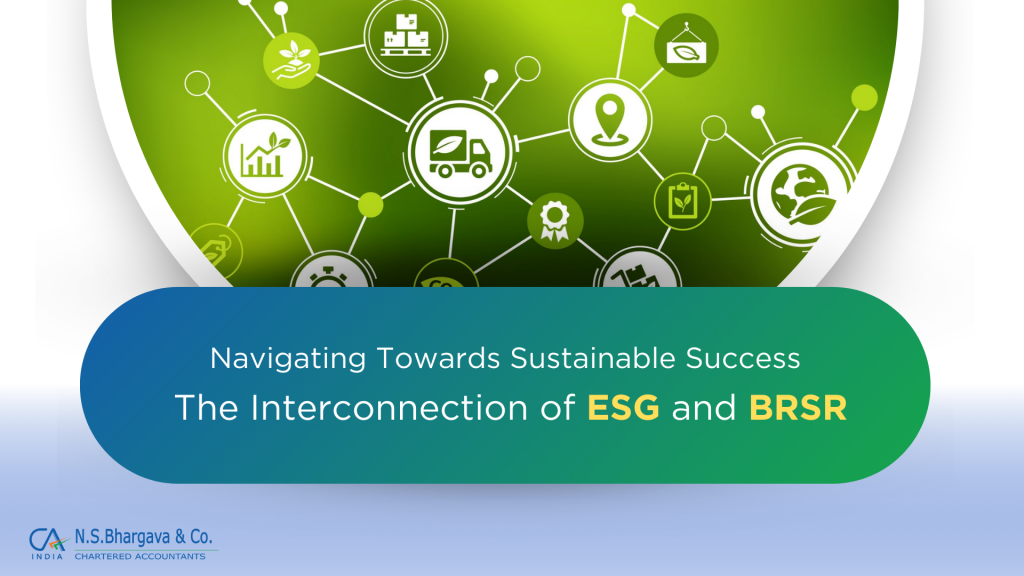
Sustainability has become a cornerstone of modern business strategy, particularly in the retail sector, where consumers increasingly demand transparency and ethical conduct. Two frameworks, Environmental, Social, and Governance (ESG) principles and Business Reporting on Sustainable Development and Responsible Business Conduct (BRSR) reporting, are pivotal in shaping sustainable practices within the retail industry. This article explores the symbiotic relationship between ESG and BRSR frameworks, highlighting their significance and impact on sustainable business practices.
ESG factors encompass a broad spectrum of environmental, social, and governance considerations that influence a company’s performance and societal impact. In the retail sector, ESG considerations extend across the value chain, including sustainable sourcing, ethical labor practices, energy efficiency, and waste management. Retailers increasingly recognize the importance of integrating ESG principles into their strategies to mitigate risks, enhance brand reputation, and foster sustainable growth.
BRSR reporting provides a structured framework for companies to transparently disclose their sustainability performance and impacts. For the retail industry, BRSR reporting serves as a mechanism to communicate ESG-related information to stakeholders, including investors, consumers, employees, and regulators. By showcasing progress towards sustainability goals and identifying areas for improvement, BRSR reporting enhances transparency, accountability, and trust.
ESG principles and BRSR reporting are inherently interconnected, guiding retailers in the selection of key performance indicators (KPIs) and the evaluation of sustainability impacts. ESG considerations serve as the foundation for BRSR reporting, while BRSR reporting facilitates the integration of ESG principles into business strategy. Together, these frameworks enable retailers to navigate sustainability challenges, drive continuous improvement, and create shared value for stakeholders and society.
In conclusion, the interconnection of ESG principles and BRSR reporting is reshaping the retail industry, driving a shift towards sustainability and responsible business conduct. By transparently communicating their sustainability performance and embracing ESG principles, retailers can create long-term value for society and the environment. As the retail sector evolves, the integration of ESG and BRSR frameworks will continue to guide retailers towards a more sustainable and resilient future.
Key Insights:
Symbiotic Relationship: ESG principles and BRSR reporting are inherently interconnected, guiding retailers in sustainability efforts and transparent communication.
Enhanced Transparency: BRSR reporting facilitates transparent disclosure of sustainability performance, fostering trust and accountability with stakeholders.
Risk Mitigation and Opportunity Identification: Integrating ESG considerations into business strategy helps retailers identify risks, seize opportunities, and drive continuous improvement.
Brand Reputation and Competitive Advantage: Embracing sustainability and responsible business conduct enhances brand reputation, attracts investment, and differentiates retailers in the marketplace.
Shared Value Creation: The integration of ESG and BRSR frameworks enables retailers to create shared value for stakeholders and society, contributing to a more sustainable and resilient future.
Way Forward:
Looking ahead, the retail industry must continue to prioritize sustainability and responsible business practices. This entails:
Strategic Integration: Retailers should integrate ESG principles into core business strategies, embedding sustainability throughout the organization.
Continuous Improvement: Retailers should leverage BRSR reporting to track progress, identify areas for improvement, and drive innovation in sustainability practices.
Stakeholder Engagement: Engaging with stakeholders is crucial for building trust, fostering collaboration, and driving systemic change towards sustainability.
Adaptability and Resilience: Retailers must remain adaptable to evolving consumer preferences, regulatory requirements, and sustainability trends, ensuring long-term resilience and relevance.
Leadership and Innovation: Retailers that demonstrate leadership and innovation in sustainability will not only mitigate risks but also seize opportunities for growth and competitive advantage in the future retail landscape.